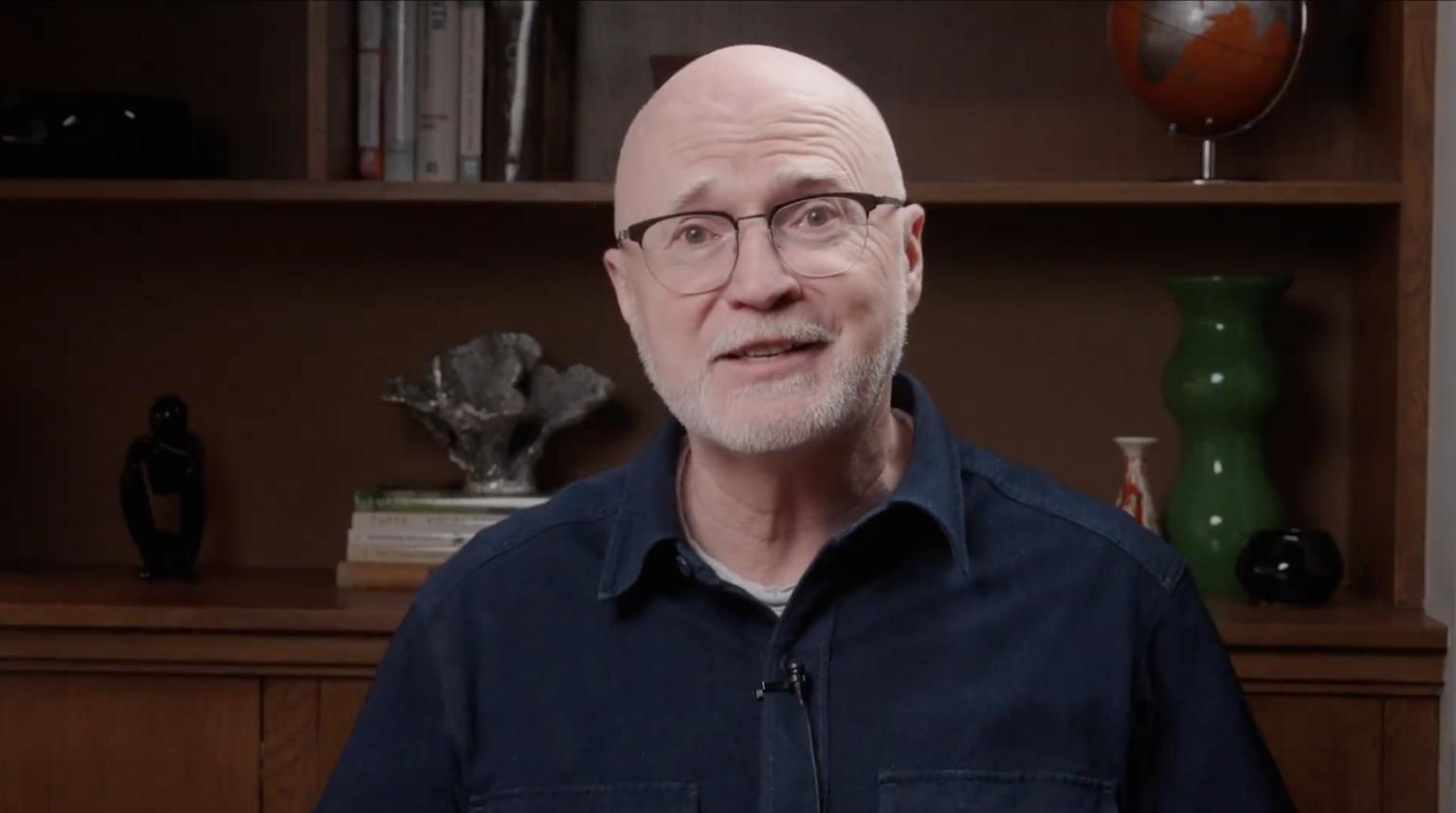A well-connected lobbyist and advocate for fossil fuel resource development is one of eight applicants alleging the David Suzuki Foundation used misleading photographs in their promotional materials.
As reported by the National Post, a Competition Bureau complaint alleges the foundation used “false and misleading” imagery in a fundraising activity. Though Stewart Muir is the only individual named in the complaint, and is a well-known advocate for the exploitative resource development generally opposed by the Suzuki Foundation, the National Post did not mention Muir’s involvement.
Stewart Muir is further not identified as the founder and CEO of Resource Works — a resource development advocacy group — in the complaint to the Competition Bureau. Both the complaint and the National Post article refer to the complainants simply as eight residents of British Columbia.
A representative from the Competition Bureau confirmed it received the complaint, but declined to identify the additional complainants.
The complaint alleges the Suzuki Foundation used a misleading photo of a Wyoming fracking field to attract donations, and characterized such as a “materially false and misleading representation.”
“Through research, policy analysis, education and citizen empowerment, the David Suzuki Foundation seeks to conserve and protect the natural environment from coast to coast to coast,” said Thomas Green, the foundation’s senior climate policy adviser.
“We are aware of the complaint filed with the Competition Bureau and as a science-based organization, we take concerns about transparency and accuracy seriously,” said Green in a statement to DeSmog. “We have published peer-reviewed reports on fracking, which outline the economic and climate risks associated with LNG expansion, however, at this time, we will not comment any further on the allegations contained within the complaint to the Competition Bureau.”
The complaint focuses primarily on the use of a photograph of fracking operations in Wyoming, both in a report hosted on the foundation’s website, as well as a background image to social media posts. The applicants allege that, because the Suzuki Foundation solicits for donations at the bottom of their web pages, or in links to the foundation’s website in their social media posts, that the foundation is misleading the public to raise funds. Among other potential remedies, the applicants are requesting fines of up to $10 million or more.
Fracking photo removed
The photograph used to illustrate the posts is one of the top image search results for Google queries like “fracking” and “what does fracking look like.”
The complaint acknowledges that the image in question was correctly identified as showing gas fracking operations in Wyoming on the Suzuki Foundation’s website, and includes a screenshot of the Suzuki Foundation report showing as much. The complaint further alleges that the Suzuki Foundation took no action when told of the alleged misuse of the image, and that as of the writing of the complaint, the image was still being used on both the foundation’s website and its social media posts. As of July 14, the photograph no longer appears on the foundation’s website, and the social media posts have been removed.
And while the complaint alleges that the foundation falsely associated the Wyoming photograph with British Columbia, screenshots of the since-deleted Instagram posts show that the accompanying text makes no direct claim about the background photo’s location. The image is mostly obscured by superimposed text, which reads in part “Investigative report on the Montney LNG formation in Northeastern B.C. and Northwestern Alberta.” Another caption reads “New report confirms new fracked gas (aka LNG) export projects in B.C. are BAD investments.”
In neither of the cited examples does the accompanying text reference the image, nor does it ask for donations.
The complaint to the Competition Bureau was announced on July 3 in a press release by Deena Del Giusto, a Fort St. John B.C. realtor. Stewart Muir is not listed on the press release issued by Del Giusto, which only indicates “eight residents of Northeast British Columbia” as those instigating the request for investigation into the Suzuki Foundation. The press release describes the foundation as having used “false and misleading imagery in its anti-energy campaigns.”
The subject has been covered by the National Post as well as the far-right opinion website Juno News. Del Giusto appears to have been interviewed by the Canadian Energy Centre (CEC) for an article they published on the subject on July 8. In the CEC article, Del Giusto claims to have visited “drilling rigs and fracking sites (…) first as a medic then as a safety hand.” According to her LinkedIn profile, Del Giusto appears to have worked for two different companies providing services to the oil and gas industry, before switching to real estate in 2023. The CEC is a Government of Alberta corporation, formerly known as the Energy War Room, formed to promote the oil and gas sector and defend it against what it describes as “domestic and foreign-funded campaigns against Canada’s oil and gas industry.” The CEC article suggests that Del Giusto determined the image was of Wyoming, and not of fracking operations near Fort St. John. However, in the PDF of the complaint attached to the press release, Stewart Muir is indicated as the individual who contacted the Suzuki Foundation in July 2024 to raise the issue of the Wyoming photograph.
Muir’s history of influence
Muir’s involvement in the complaint is noteworthy given his advocacy for energy projects, long history of downplaying industry’s role accelerating climate change, and his outspoken criticism of the Suzuki Foundation in particular. In a March 2019 editorial published by the Calgary Herald, Muir characterized the foundation as “green zealots” alongside a misleading statement that wind and solar power systems don’t work because of lack of wind and sunlight (both wind and solar power systems store energy in batteries and can be deployed in tandem to address intermittency concerns).
In a 2017 post on Resource Works, Muir alleged the Suzuki Foundation issued a misleading report that claimed that methane emissions from natural gas operations in British Columbia were higher than reported. The foundation issued a follow-up report in 2018 confirming initial reporting that both the oil and gas industry in B.C. and the government under-report fugitive methane emissions, and that 85 percent of daily methane leakage was in fact coming from operational gas wells. Recent research, such as an article in the journal Environmental Science and Technology, confirm the Suzuki Foundation’s research, indicating that Environment and Climate Change Canada underestimated methane emissions from nonoperational oil and gas wells by a factor of seven.[8] Methane, which is released from all fossil fuel extractions, is a particularly potent greenhouse gas, some 80 percent more powerful than carbon dioxide over the first 20 years it enters the atmosphere. Though often presented as a safer and cleaner alternative to coal, natural gas has been described as a potential “carbon bomb” for its destructive climatological effects.
DeSmog has recently reported Muir attended conservative influencer Jordan Peterson’s Alliance for Responsible Citizenship (ARC) conference in the United Kingdom, dubbed the “Glastonbury of Climate Denial” and that Resource Works participated in an influence campaign against a Vancouver ban on natural gas for home heating. Resource Works received seed funding in 2014 from a provincial trade association known as the Business Council of British Columbia, whose members in the past have included Shell Canada, Imperial Oil, Chevron and Conoco Phillips. As DeSmog reported, Resource Works’ stock submissions forms — pre-written copy sent out to mailing lists encouraging likeminded individuals to then forward to municipal authorities as if they were original letters from concerned citizens — contained misleading and false information, such as stating the gas ban would impact restaurants. In fact, it only targeted residences. Despite the influence campaign, the gas ban passed in late-November 2024.
Astroturf campaigns by oil and gas advocates and lobbyists are not new in Canada. DeSmog recently reported that such groups, advocating for a resumption of coal mining in Southern Alberta, have personal and professional connections to the fossil fuel sector as much as the current conservative governments of Alberta and Saskatchewan. In addition, the idea that ordinary citizens are pushing back against misrepresentation by Canada’s leading environmental groups isn’t new either, as this is the narrative behind Vivian Krause, the self-described researcher who became a media darling for allegedly exposing the foreign funding of Canadian environmental organizations. The Canadian Energy Centre was created as a direct consequence of Krause’s allegations, which insinuated but never proved a vast conspiracy by American philanthropic organizations to fund Canadian environmental organizations, including the Suzuki Foundation, with an aim to land-lock Canadian resources.
A Substack post by energy commentator Stephen Heins expanded on this approach by arguing “The Rockefellers Fund the David Suzuki Foundation to Tell a Tall Tale About Drilling in British Columbia.” Krause had previously identified the Rockefeller Brothers foundation as a source of funding for Canadian ENGOs. In a 2019 opinion article published by the Financial Post, Krause alleged that “Rockefeller-supported groups” were “helping to defeat the UCP,” Alberta’s pro-fossil fuel and climate change denying United Conservative Party. In a 2012 article for the same publication, Krause detailed American sources of funding to the Suzuki Foundation stretching back to the 1990s, though failed to indicate whether donors were having any impact on the foundations campaigns or operations.
Vivian Krause was the keynote speaker at Resource Works’ fifth anniversary party in 2019, and was photographed with Stewart Muir.
The complaint to the Competition Bureau comes amid growing backlash from the oil and gas sector against provisions in Bill C-59, passed in 2024, designed to discourage false and misleading environmental claims. As previously reported by DeSmog, several Canadian oil companies and oil industry lobby groups removed content from their websites related to climate change and net zero goals in advance of the law taking effect in 2024. Ever since, industry advocates have demanded the laws be repealed, arguing they’re silencing the industry.
Del Giusto’s press release appears to make reference to the new anti-greenwashing provisions, stating “we’re asking the Competition Bureau to hold the David Suzuki Foundation to the same standard businesses face: tell the truth.”
Muir and Del Giusto did not immediately respond to DeSmog’s requests for comment.
Subscribe to our newsletter
Stay up to date with DeSmog news and alerts






